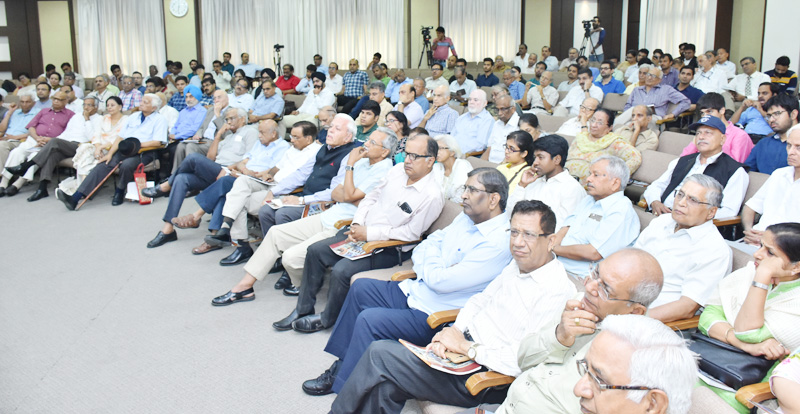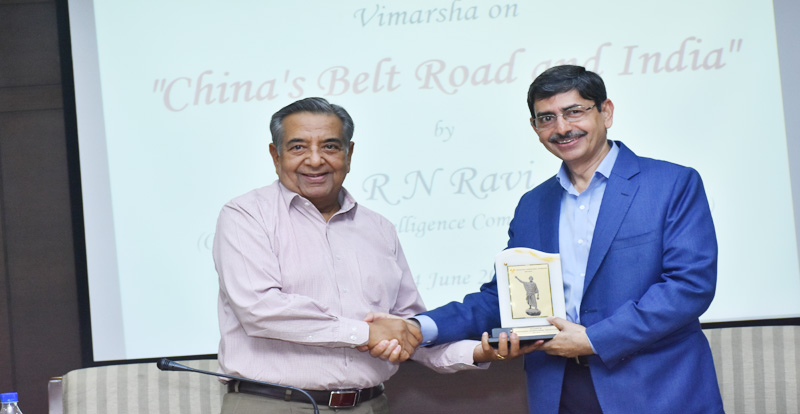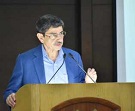On 14 Jun 2017, Mr RN Ravi, Chairman, Joint Intelligence Committee, Government of India, delivered an illuminating talk on “China's Belt Road and India" under the auspices of Vimarsha series of talks, delivered by persons ofeminence. The talk was attended to by a wide cross-section of people - former military officers, members of the academia, think tanks and civil services, to mention but a few. Consistent with talks under Vimarsha series, the session opened up and concluded with the recital of the Shanti Mantra (invoking the Holy Spirit for universal peace).
In his opening remarks, General N C Vij, Director, VIF, dwelt on the broader dimensions of China-India relationship, highlighting that it sits on a swath of contentious issues, including the boundary settlement issue which has evaded any peaceful resolution for the past several decades. The bilateral complex between China and India has got further vitiated with Beijing shielding Pakistan-based terrorist Masood Azhar as also stonewalling India’s persistent efforts to get into the Nuclear Suppliers Group (NSG). Furthermore, China’s increasing militarization around India’s periphery, especially in the Indian Ocean region, under the garb of ‘Belt Road initiative’(BRI) signals to a hegemonic Chinese agenda. Coming back to the boundary issue, the Director forewarned that while the boundary between China and India has remained relatively calm over the decades, this by no means gives any comfort that it will remain so in the future as well. Besides, China’s cozy nexus with Pakistan, a country which has remained for decades a hot spring of Islamist terrorism for much of the rest of world including India, has been adding to New Delhi’s discomfiture, compounded further with China laying out strings of infrastructure projects in disputed territories in Pakistan Occupied Kashmir (POK).

Mr R N Ravi presented an insightful analysis of China’s ‘Belt-Road’ initiative (BRI). While pitching for a case by case examination of projects being laid out under BRI, Mr Ravi stressed that India’s wariness of BRI stems from its strategic dimensions. He however evinced that the initiative itself is an offshoot of a broader Chinese strategy, aimed at enhancing China’s comprehensive national power – political, economic and military, among others. The BRI bears a clear imprint of a Chinese characteristic: implement first, announce later. He underlined, among other things, a good number of projects under the BRI got underway much earlier than when the announcement was made in two raw installments by President Xi Jingpin with great fanfare in 2013. China’s policy planners, aware of an impending slowdown in the economy, had initially conceived the BRI as an economic recovery plan which entailed spending on infrastructure-related projects. The brand name ‘One Belt One Road’ was probably added to it as an afterthought so as to make it more saleable with regional countries.

Commenting on the nature of investments being made for BRI projects, Mr Ravi asserted that projects being funded with credits from China makes no great commercial sense and the invested countries run the risk of ending up as client-states for China. In so far as China making investments in economically unviable projects is concerned, the speaker noted that when states get into economic activities, strategic priorities take precedence over commercial interests. While defending India’s boycott of Chinese sponsored ‘Belt-Road Forum’ held last month in Beijing, Mr Ravi argued that India’s participation would have amounted to her endorsing the project. Among other highlights, Mr. Ravi discussed nuances of other connectivity plans as counterweights to China’s Belt and Road initiative. The talk was followed by a lively Q&A session.








